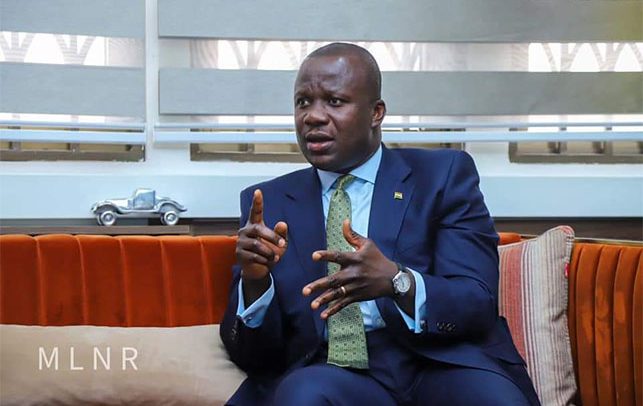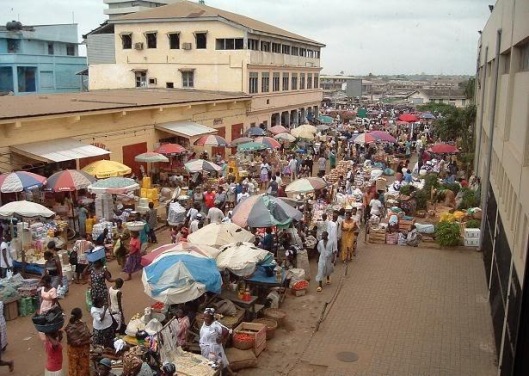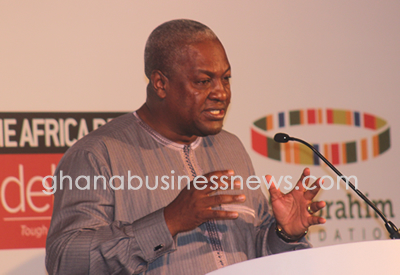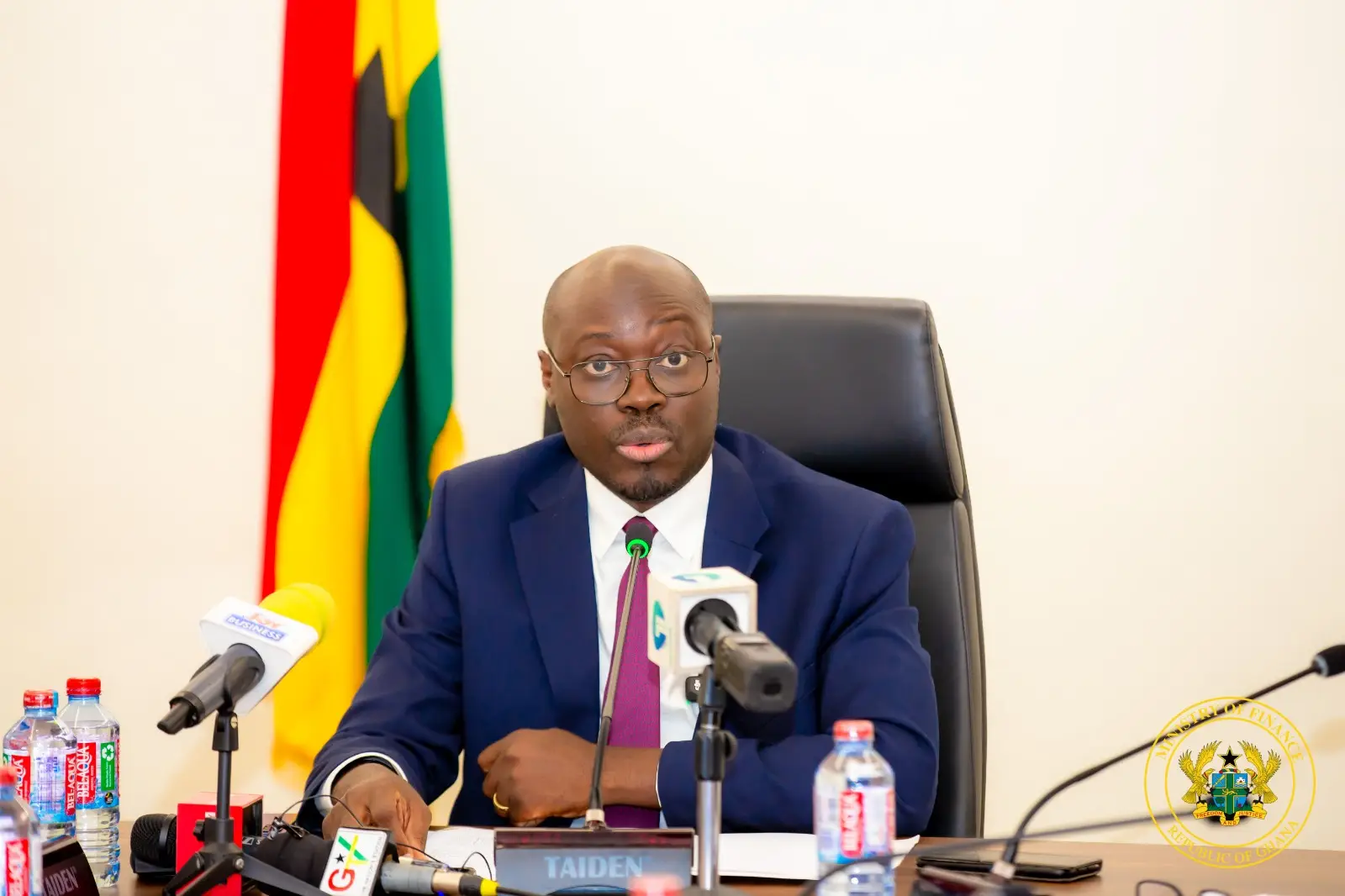
By Bernard TETTEH-DUMANYA (Dr)
As Ghana embarks on a transformative economic journey, the 24-Hour Economy Plus initiative emerges as a pioneering, inclusive, and time-sensitive strategy aimed at boosting productivity, creating jobs, and enhancing industrial competitiveness. A critical question, however, is how to finance this ambitious agenda sustainably without increasing reliance on external debt or conditionalities imposed by institutions such as the IMF or World Bank.
This article presents a viable, Ghana-owned financing framework that seeks to mobilize US$4.1 billion through innovative, blended, and domestically anchored funding mechanisms. By leveraging local financial assets, implementing institutional reforms, and incentivizing productivity gains, this approach is designed to deliver lasting economic impact and foster self-reliant growth. The financing strategy is built on eight interlinked components, drawing on Ghana’s existing financial ecosystem:
| Source | Mechanism | Amount (USD) | Key Assumptions |
| Pension & Insurance Funds | Allocate 10percent of investable assets | US$800M | Based on over US$8B in Tier 2, Tier 3 pensions and insurance portfolios |
| Diaspora Bonds | Targeted bonds with 5–6percent yield | US$500M | Assumes 10percent conversion of US$4.5B in annual remittances |
| Municipal Development Bonds | City/district-backed productivity bonds | US$400M | 20 municipalities raise US$20M each through local revenue-backed bonds |
| Public-Private Partnerships (PPPs) | Equity & Build-Operate-Transfer (BOT) investments | US$1B | Large-scale logistics, agro-industry, and smart infrastructure |
| Sovereign & Stabilization Funds | Partial GIIF, ESLA, Petroleum Fund allocations | US$300M | Redirecting energy levies and sovereign reserves toward productivity investments |
| Asset Securitization | Data, GIS, and land-backed finance | US$250M | Requires asset certification, valuation, and legal frameworks |
| Productivity Tax Gains | Extended hour business taxes | US$250M | Based on 10–15percent GDP productivity growth from 24-hour operations |
| Domestic Impact Capital | Faith-based, philanthropic and community funds | US$100M | Aligned with ESG and social enterprise missions |
The successful implementation of Ghana’s 24-Hour Economy Plus hinges on the strategic mobilization and integration of diverse domestic funding sources embedded within the country’s existing financial ecosystem. The first major funding avenue is Ghana’s Pension and Insurance Funds, which collectively manage over US$8 billion in investable assets, primarily across Tier 2 and Tier 3 pension schemes and insurance portfolios.
Allocating just 10percent of these assets toward the 24-Hour Economy could unlock approximately US$800 million in stable, long-term capital. This sizable fund pool is well suited for financing infrastructure projects such as solar mini-grids, market logistics hubs, and workforce development initiatives. With appropriate risk assessment frameworks and regulatory incentives, pension funds can act as anchor investors, providing predictable financing for Build-Operate-Transfer (BOT) projects and green infrastructure development.
A second significant source is Diaspora Bonds, estimated to raise around US$500 million. Annual remittances to Ghana exceed US$4.5 billion, reflecting a deep commitment from the Ghanaian diaspora to national development. By issuing targeted diaspora bonds offering competitive yields of 5–6percent, the government aims to convert approximately 10percent of these remittances into productive investment capital.
This financing will support critical sectors such as digital economy expansion—including e-commerce platforms and AI-driven shift management tools—as well as market logistics hubs and the Ghana Diaspora Productivity Fund. Mobilizing diaspora capital not only broadens the country’s financial base but also strengthens economic ties with Ghanaians abroad, encouraging their active participation in the nation’s transformation.
The third funding pillar involves Municipal Development Bonds (or District Assembly Bonds), which are projected to contribute approximately US$400 million. For instance, the top 20 municipalities could each raise US$20 million through revenue-backed municipal bonds combined with asset-backed financing such as GIS data securitization. This mechanism empowers local governments to invest in infrastructure critical for a 24-hour economy, including cold storage facilities, night-time transport terminals, and localized solar electrification projects.
Municipal bonds also promote fiscal decentralization, enable responsive city-level innovation, and enhance financial accountability through direct linkage to local revenue streams. Next, Public-Private Partnerships (PPPs) are expected to mobilize around US$1 billion. Large-scale investments in logistics, agro-industrial parks, and smart infrastructure require significant upfront capital ideally suited for equity and Build-Operate-Transfer (BOT) arrangements.
PPPs will catalyze private sector participation, encourage risk sharing, and enhance efficient project delivery. This approach aligns closely with ongoing policy reforms, establishing a clear institutional framework that incentivizes private investors to engage in continuous productive activities, especially in critical sectors such as transport security and energy infrastructure.
Additionally, Sovereign and Stabilization Funds are projected to contribute approximately US$300 million through partial reallocations from Ghana’s sovereign wealth instruments, including the Ghana Infrastructure Investment Fund (GIIF), Petroleum Stabilization Funds, and Energy Sector Levies (ESLA). Redirecting these funds toward productivity-enhancing investments—such as solar mini-grids, customs digitization, and labor market reforms—supports strategic use of sovereign wealth to bolster economic diversification and long-term resilience beyond conventional expenditure.
Finally, Asset Securitization presents an innovative opportunity to raise approximately US$250 million through the securitization of data, GIS, and land assets. Unlocking the value of these intangible and physical assets requires robust certification, valuation standards, and enabling legal frameworks. Capital raised through this channel will primarily support the expansion of digital infrastructure, including e-commerce marketplaces and AI-powered operational systems, positioning Ghana as a leader in leveraging digital assets for economic growth.
Productivity tax gains are projected to generate approximately US$250 million, derived from an anticipated 10–15percent increase in GDP productivity resulting from 24-hour operations. These additional tax revenues will serve as a stable, endogenous funding source to sustain ongoing investments, incentivize extended business hours, and finance complementary public services such as around-the-clock customs operations and enhanced port efficiency.
This cyclical revenue mechanism ensures that the 24-Hour Economy Plus initiative is not merely a one-time capital injection but a self-reinforcing model of continuous economic growth and reinvestment. Complementing this is the mobilization of US$100 million in domestic impact capital drawn from Ghana’s dynamic network of faith-based organizations, philanthropic foundations, and social impact funds, all aligned with environmental, social, and governance (ESG) principles and social enterprise objectives.
These impact investments will prioritize workforce empowerment and SME enablement through initiatives such as the provision of solar lighting kits, security training for night-shift workers, and 24-hour microfinance facilities tailored to the unique needs of businesses operating beyond conventional hours. By focusing on marginalized and informal sector participants, impact capital will play a critical role in promoting inclusive and equitable growth.
By harnessing Ghana’s existing financial ecosystem—which encompasses institutional investors, diaspora capital, municipal bonds, sovereign funds, asset securitization, productivity tax gains, and impact investments—the 24-Hour Economy Plus financing model presents a comprehensive, domestically anchored solution.
This multi-faceted approach not only reduces reliance on external borrowing but also strategically aligns capital deployment with ongoing policy reforms, institutional innovation, and robust risk management frameworks. The resulting financial synergy will accelerate infrastructure development, digitize services, expand productive employment, and ultimately foster a resilient, inclusive economy operating around the clock—driving sustained national prosperity.
>>> is a distinguished Ghanaian financial economist and consultant with nearly three decades of experience spanning academia, corporate finance, and agribusiness. He has held pivotal roles at institutions such as UBA Ghana, SIC Financial Services, Empretec Ghana, and the Swiss International Finance Group, reflecting his profound understanding of global finance. Renowned for pioneering efforts in risk management, compliance, and corporate strategy, Dr. Tetteh-Dumanya has significantly contributed to Ghana’s financial landscape. His expertise encompasses venture capital, business and financial reengineering, and fundraising, playing a crucial role in the growth and development of numerous entities. Driven by a commitment to capacity development, he has provided consultancy services to a diverse array of local and multinational organizations, including GIZ, AGRA, SNV, DANIDA, and USAID. As the CEO of SGL Royal Kapita, he has introduced innovative investment services targeting Ghana’s agriculture sector, aiming to support farmers and agribusinesses in achieving financial stability and growth. Beyond his professional endeavors, Dr. Tetteh-Dumanya is an influential columnist, offering incisive analyses on Ghana’s economic policies and advocating for strategic financial mechanisms to enhance the nation’s economic sovereignty. For inquiries, Dr. Tetteh-Dumanya can be reached at: [email protected]
The post Funding 24-hour economy blueprint: A US$4bn without IMF or World Bank appeared first on The Business & Financial Times.
Read Full Story




















Facebook
Twitter
Pinterest
Instagram
Google+
YouTube
LinkedIn
RSS